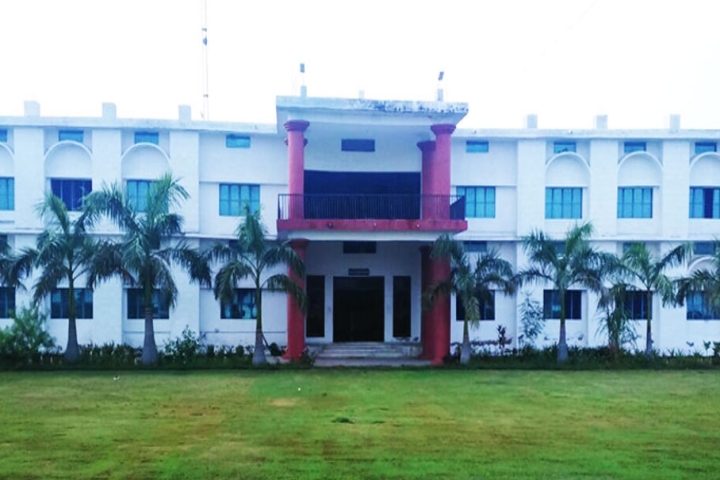
Video Editing Course Details - Fees, Subjects, Syllabus, Duration, Eligibility, Career Scope
Degrees offered: Diploma, B.F.A., B.A., B.Sc., B.Sc.(Hons)
What is Video Editing
Video editing includes an arrangement of different shots to create visual projects. It is used to create a comprehensive video. Movies, television shows, video advertisements, and video essays are some of the examples. Video editors generally add effects, alter, add digital effects, and make required changes to the recorded video. Somewhere around 9 colleges offer Video Editing courses in India.
Video editing is a course in the field of design. Many institutes in India have started providing video editing courses. The admissions are offered at UG, PG, and diploma levels. Graduates can earn decent salary packages after gaining significant experience. Video editing also has a huge scope abroad. However, the salary of the graduate depends on several factors.
Technical expertise, artistic vision, and meticulous attention to detail are all necessary for video editing. Editors need to be proficient in applying effects, adjusting audio levels, and flawlessly assembling video using programmes like Avid Media Composer, Final Cut Pro, and Adobe Premiere Pro.
Graduates are offered job profiles like Video Editor, Graphic Designer, Multimedia Artist and Animator, Television Studio Editor, Broadcast and Sound Engineering, Technician, and Film Editor. The average salary offered to the graduates is Rs. 3 LPA- 9 LPA in companies like Webdew, Ruckus, VeracityColab, The DVI Group, Blend, LAI Video, Blue Chalk Media, Futuristic Films, Kyro Digital.
Highlights- Video Editing
Particulars | Values |
Branch Name | Video Editing |
Degree | |
Duration | UG: 4 years PG: 2 years |
Eligibility | UG: 10+2 in any field PG: Bachelor’s degree in the same field |
Admission Process | Admission Examination/ Direct Admission |
Entrance Exam | FTII JET |
Course Fees | Rs. 70,000 to Rs. 5 Lakhs |
Job Profiles | Video Editor, Graphic Designer, Multimedia Artist and Animator, Television Studio Editor, Broadcast and Sound Engineering, Technicians, Film Editor |
Average Salary | Rs. 3 LPA- 9 LPA |
Recruiting Companies | Webdew, Ruckus, VeracityColab, The DVI Group, Blend, LAI Video, Blue Chalk Media, Futuristic Films, Kyro Digital |
Specialisation or Similar Ones
Video editing encompasses several specialisations and related fields that allow professionals to focus on specific aspects of the video editing field. Here are some common specialisations and similar fields within video editing:
Film and Video Editing | Video Editing,Camera, and Lighting |
Video Editing and Sound Recording | |
Fim Editing and Graphic Design |
Top Colleges Video Editing Colleges in India with Fees
Many colleges in India offer Video Editing degree programmes. The admission process is based on an entrance examination or merit score. Students are advised to carefully check all the course details and eligibility criteria before applying for admission. In the table below, we have mentioned the top Video Editing colleges in India:
Colleges | Fees |
- | |
Rs. 80,500 | |
Rs. 1.20 Lakhs | |
- | |
Rs. 72,000 | |
- | |
Rs. 4.77 Lakhs | |
- | |
- |
Note: The fee structure provided above can be for any particular Video Editing course (Diploma/ Degree/PGD).
Top Private Video Editing Colleges in India with Fees
There are various private colleges in India offering Video Editing courses in India at both undergraduate and postgraduate levels. Studying at a private college is comparatively more expensive than studying the same at a public institute. In the table below, we have listed the top private colleges in India offering Video Editing courses in India.
Colleges | Fees |
JS University, Shikohabad | - |
GRD Institute of Management and Technology, Dehradun | Rs. 80,500 |
Noorul Islam Centre For Higher Education, Kanyakumari | Rs. 1.20 Lakhs |
Breathing School of Design, Malappuram | - |
Bharatiya Vidya Bhavan's Film and Television Studies, Delhi | Rs. 72,000 |
CineCraft Academy of Film and Television, Pune | - |
Amity School of Film and Drama, Noida | Rs. 4.77 Lakhs |
Sadhna Academy of Media Studies, Noida | - |
National Academy of Cinema and Television, Bengaluru | - |
Eligibility Criteria (UG & PG) of Video Editing
The students who wish to pursue an undergraduate or a postgraduate degree in Video Editing must meet certain eligibility criteria. Generally, for undergraduate degrees, candidates are required to clear their 10+2 with a valid aggregate score. Similarly, for a postgraduate degree, they need a Bachelor’s degree in Video Editing or a related discipline.
Eligibility Criteria for UG Courses
The eligibility criteria for undergraduate courses depend on the institute. Candidates can check the eligibility criteria for the desired institute on the official website of the course. Mentioned below are the general eligibility requirements for the undergraduate course.
- Students who have completed their 10+2 education in any stream are eligible.
- The minimum aggregate score required for admission is 50 per cent or as specified by the institute.
- Many institutes accept admission based on the entrance examination scores. Some colleges may also conduct group discussions, personal interviews or aptitude tests.
Eligibility Criteria for PG Courses
The eligibility criteria for the postgraduate course depends on the institute but it remains almost the same for every institute. They can visit the official website to check the eligibility and other course details. Mentioned below are the admission requirements for a Video editing course at the PG level.
- Candidates must have completed a bachelor's degree in video editing or similar discipline.
- They need to meet the valid aggregate marks as specified by the institute. For candidates belonging to the reserved categories, there may be some relaxation.
- Most of the colleges conduct entrance exams, group discussions and interviews to shortlist students for postgraduate video editing courses.
- Eligibility depends on different institutes and course specialisations.
Top Entrance Exams for PG Courses
Candidates who have completed their undergraduate in a relevant field can attempt examinations like FTII JET. To pursue higher education in Video Editing, students need to appear for the following examinations.
Exam Name | Level | Conducting Body | Exam Schedule |
National | Satyajit Ray Film & Television Institute, Kolkata | - |
Scope of Video Editing in India and Abroad
There are various career options for leading video editors in production houses. Freelancing is widely opted for by Video editors. With a few years of experience in video editing, they can earn a high salary package. The field has a lot of opportunities. Graduates can join production houses, news channels, film studios, or private and government offices.
Some of the popular job roles include graphic designer, photographer, animator, television studio editor, and movie editor. Candidates interested in studying further can also pursue the course abroad. The average salary of a Video editor in India is Rs. 3.8 LPA.
Course Fees Video Editing
| Minimum Fees | Maximum Fees | |||
|---|---|---|---|---|
| Private | Government | Private | Government | |
| UG | ||||
| PG | ||||
| DIPLOMA | ||||
Course Subjects
Video Editing provides the students with knowledge on how to edit a video effectively. It also provides various opportunities to the student to express their creativity. Transitions and Effects, Composting, Colour Correction and Grading, and Video Production Workflow are the core topics covered in the syllabus of UG degrees.
Video Editing Syllabus for UG Degrees
The syllabus for Video Editing for UG degrees provides basic and foundational knowledge of the concepts. The course curriculum also includes collaborative projects which will provide practical knowledge and also helps the students work together. Mentioned below are the subjects of Amity School of Film and Drama for UG degree in Video Editing.
Introduction to Video Editing | Video Production Workflow |
Editing Techniques | Colour Correction and Grading |
Audio Editing and Mixing | Transitions and Effects |
Compositing | Storyboarding and Scripting |
Project Management | Encoding and Exporting |
Legal and Ethical Considerations | Industry Trends and Technologies |
Portfolio Development | Collaborative Projects |
Careers in Video Editing
Video editing is a great career for students having an interest in motion pictures, television, commercial advertising or internet video production. Every organisation requires video editors, therefore the scope is very broad. Mentioned below are the popular career options available in the field of Video editing.
Graphic Designer: Graphic Designers use two or three-dimensional art to create visual concepts. They are responsible for designing visuals like Logos, layouts, mockups and posters.
Video Editor: Video Editors edit and assemble recorded raw material into a suitable finished video to the audience. They play a crucial role in storytelling by ensuring the seamless flow and aesthetic quality of the video content.
Film Editor: Film Editors manage the camera footage, sound effects, graphics, and special effects to produce a final film. They play a vital role in shaping the final look and feel of a film, enhancing its emotional and visual impact.
Multimedia Artist and Animator: Multimedia Artists and Animators use computer programmes to create graphics and animation and create a movie game, film or visual effect. They combine artistic skills with digital tools to bring characters, scenes, and stories to life.
Broadcast and Sound Engineering Technicians: Broadcast and Sound Engineering Technicians operate, monitor and adjust audio and video equipment to ensure quality. They ensure high-quality sound and visuals for television, radio, live events, and multimedia productions.
Upcoming trends
The field of video editing is rapidly evolving, driven by advancements in technology and changes in how audiences consume content. Here are some of the upcoming trends in video editing:
- Animation
- Live streaming
- Cinema graphs
- Video transitions
- Aerial Videography
Job Profiles and Top Recruiters
Graduates having technical knowledge and relevant skills are well desired. There are varying opportunities for video editing professionals. The work settings of a Video editor in India are film production houses, electronic news channels, and the media industry.
Top Recruiters:
- Webdew
- Ruckus
- VeracityColab
- LAI Video
- Blue Chalk Media
- Futuristic Films
Average Salary
Graduates must know the salary offered in the field of Video editing. It depends on many factors such as the skills and experience of the candidates and the job profile applied by the candidate. Hard work and practice can significantly help in a candidate’s growth. In the table below, we have provided the salary packages of popular job roles.
Job Profiles | Average Expected Salary |
Video Editor | Rs. 3.8 LPA |
Graphic Designer | Rs. 3.8 LPA |
Multimedia Artist and Animator | Rs. 4.3 LPA |
Television Studio Editor | Rs. 5.3 LPA |
Film Editor | Rs. 4 LPA |
Source: Ambition Box
The salary figures mentioned anywhere in these articles are just for reference purposes. Please treat them as such. Actual salaries may vary depending on respective candidates, employer, job location, and numerous other factors.
Required Skillset for Video Editing
Candidates require both soft and hard skills to perform well academically and professionally. Video editing is a highly-practical discipline that requires in-depth hands-on experience apart from a good theoretical understanding of the concepts. Some of the skills necessary for Video editing are mentioned below.
- Good teamwork
- Good communication
- Multitasking
- Critical thinking
- Analytical skills
- Interest and aptitude for Video editing
Course Curriculum for Video Editing
The course curriculum of Video editing provides knowledge on how to structure video footage and about different video editing styles. It also provides information on concepts like screen direction, sound design, continuity, picture management, colour correction, and special effects. Students are trained on the foundations and techniques used while editing videos.
The syllabus also provides information on various video editing tools such as Photoshop, Premiere Pro, and Final Cut Pro. Students are taught intermediate and advanced-level concepts in the course along with its practical applications.
Popular Video Editing Entrance Exams in India
Popular Video Editing Colleges in India VIEW ALL
Frequently Asked Questions (FAQs)
Question: Is a degree compulsory for video editing?
Answer :
Education is very important. However, video editing aspirants can pursue it without a degree but with training programs/online courses. Many colleges and schools have exceptionally good video editing courses, but the craft is more than just a degree. A college degree gives more knowledge of video editing and related fields. Whereas, a training program in video editing delves into the depths of editing.
Question: Is video editing hard to learn?
Answer :
It is not difficult to learn how to use the software but learning to edit is a bit tough when you are subjected to complex tasks. Editing requires years to master. It is a craft and art; you get the hank only when you approach it closer. Years of editing experience lead to mastery.
Question: What are the other areas in which video editors can work?
Answer :
Video editors can be employed in animation companies, broadcast companies, film companies, independent production companies, post-production companies, and video or computer games companies. News channels, media and advertising companies also hire video editors.
Question: Do animators get paid well?
Answer :
The starting salary of animators is low, that is from Rs. 8000- Rs. 15,000 per month. With experience, they can earn up to Rs. 25,000 – Rs. 60,000 per month. The future also looks bright for skilled animators in the US, and European studios are outsourcing to India, and Indian companies are creating a good number of animated films.
Question: Is film editing a good career?
Answer :
Video editing is perfect for the right people. The salaries are the highest in the motion pictures industry. Video editor's salary will depend on a lot of factors, however. The employment of film and video editors is projected to grow up to 22% from 2019-2029. It requires a bachelor's degree in a film-related field or broadcasting like communications. The dark side is that it is very competitive to become an editor. Demand is also very high.


.jpg)












